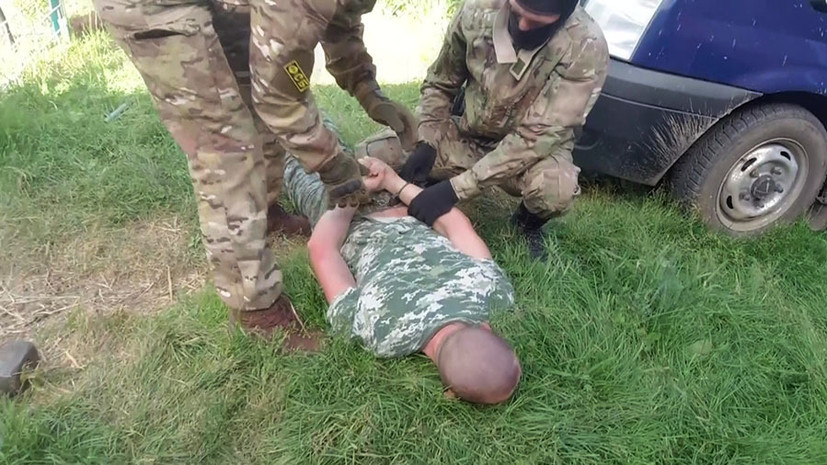Employees of the Federal Security Service of the Russian Federation conducted a special operation in the Ivanovo region, during which they stopped the illegal activities of an organized criminal group. According to the FSB Public Relations Center, the attackers specialized in the production of synthetic drugs on an especially large scale and their illegal sale via the Internet.
"In the course of operational-search activities, active members of the organized criminal group and the location of the laboratory were identified, the role participation of each in illegal operations was determined, the systemic nature of their illegal activities was confirmed," the press release says.
During the searches, security officials seized from warehouses and hiding places at least 34.8 kg of the drug mephedrone, more than 1.2 tons of drug-containing liquids, over 7.2 tons of chemical reagents and precursors, and various laboratory equipment. In addition, ten firearms and 1.2 thousand ammunition of various calibers, three devices for silent shooting were found.
“As a result of the red-handed arrest of the members of the criminal group, the activities of the clandestine proceedings were suppressed. According to preliminary estimates, the production capacity of the liquidated drug laboratory made it possible to produce more than 200 kg of synthetic drugs per month, ”the FSB said.
It is also noted that the members of the organized criminal group used the labor of foreign citizens, whom they forcibly held under the threat of physical harm.
The investigating authorities are investigating a criminal case under Part 5 of Art. 228.1 of the Criminal Code of Russia (“Production of narcotic drugs on an especially large scale”). The issue of initiating criminal cases under Part 2 of Art. 222 of the Criminal Code of Russia ("Illegal acquisition, transfer, sale, storage, transportation or carrying of weapons, its main parts, ammunition") and Part 2 of Art. 210 of the Criminal Code of Russia ("Organization of a criminal community and participation in it").
“The members of the criminal group have been taken into custody as a preventive measure. Operational search activities and investigative actions are continuing, ”the FSB concluded.
Also on August 12, it became known about the detention in a forest belt in the village of Kozino of the Krasnogorsk urban district of the Moscow region of a 43-year-old resident of St. Petersburg, who had 1 kg of amphetamine and 600 ecstasy tablets with him.
“During the personal search, two plastic bags with a powdery substance and two packages of tablets were found and seized from the man. It was found that the seized was amphetamine with a total weight of about 1 kg and ecstasy in the amount of 600 tablets, ”said Tatyana Petrova, head of the press service of the Main Directorate of the Ministry of Internal Affairs of Russia in the Moscow Region.
Earlier, at the end of July, FSB officers liquidated a large drug laboratory in Yekaterinburg. The security forces seized substances in the form of a powder with a total weight of more than 3 kg, cans of precursors, laboratory equipment for drug synthesis, electronic scales and other attributes of drug manufacturers. A criminal case was initiated under Part 3 of Art. 30, h. 5 art. 228.1 of the Criminal Code of the Russian Federation (Attempt on the illegal production, sale and transfer of narcotic drugs on an especially large scale).
On July 6, the FSB stopped the activities of a criminal group selling synthetic drugs. During a special operation in the Moscow and Yaroslavl regions, three couriers were detained. They seized at least 45 kg of amphetamine and 10 kg of MDMA in the form of 23 thousand tablets intended for sale in 12 constituent entities of the Russian Federation.
The Prosecutor General's Office, in its report on the state of crime in Russia for January - June 2020, reported an increase in drug crime in 40 of the 85 regions of the country. At the same time, the number of crimes in this area has decreased in Moscow, St. Petersburg, Chelyabinsk region, Krasnodar Territory and Bashkiria.
We add that at the end of June experts of the federal project "Sober Russia" made a rating of the country's regions in terms of the effectiveness of anti-drug work. It was formed on the basis of data from Rosstat, the Ministry of Health, the Ministry of Internal Affairs of Russia, the Prosecutor General's Office and other departments.
“The anti-drug rating of regions is intended to show the most problematic regions for a more thorough anti-drug work. The federal center should show a more attentive attitude to such regions and precisely build a system of assistance and solutions to drug addiction problems, "said Sultan Khamzaev, head of the Sober Russia project, a member of the Public Chamber, to RT.
Thus, the Chukotka Autonomous Okrug is recognized as the most prosperous subject of the Russian Federation in the anti-drug rating. The top 5 also includes the Nenets Autonomous Okrug, the Chechen Republic, Arkhangelsk and Oryol regions.
Experts recognized the Republic of Khakassia as the most disadvantaged region in terms of the effectiveness of anti-drug policy. This is followed by the Chelyabinsk, Moscow, Amur regions and St. Petersburg.

